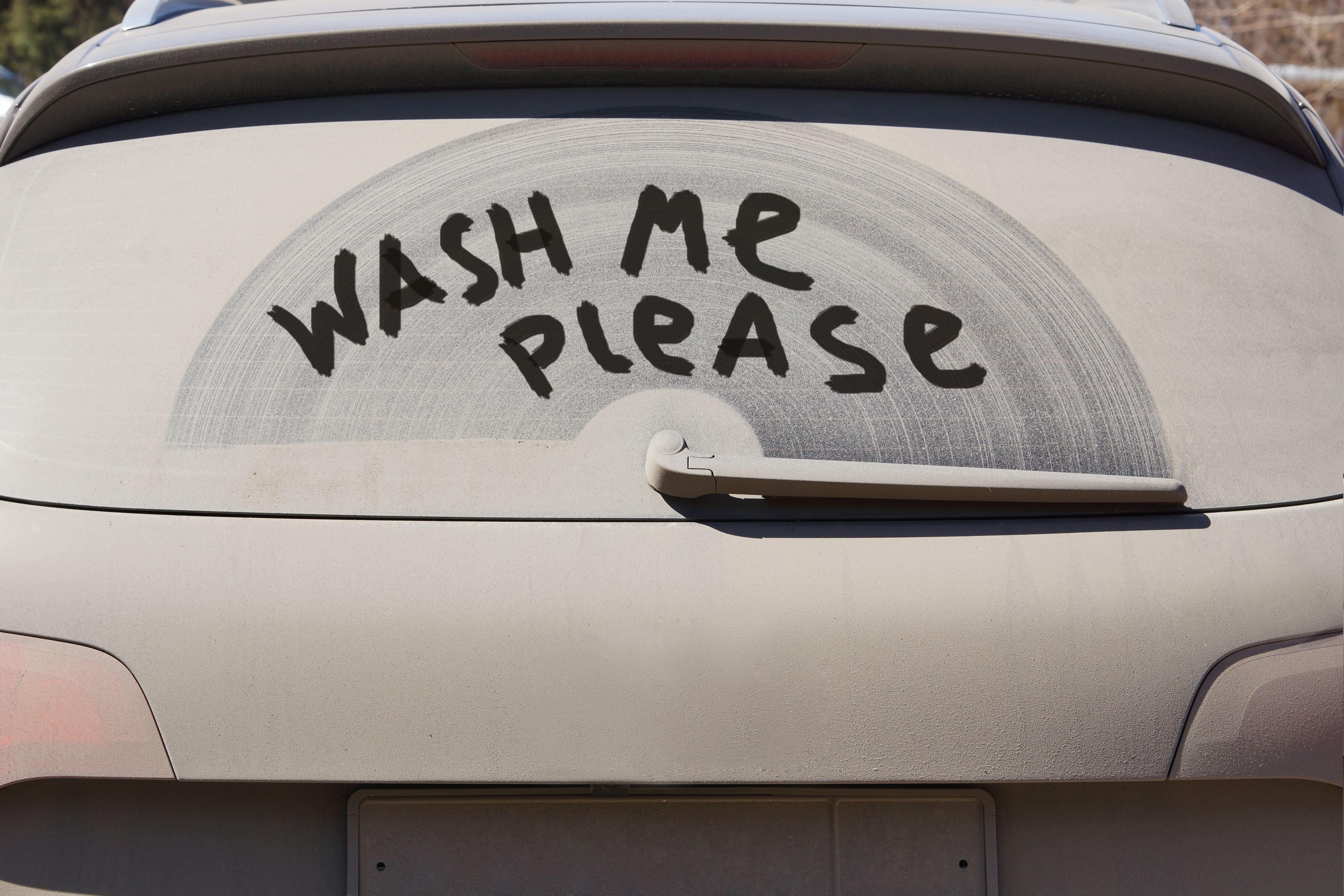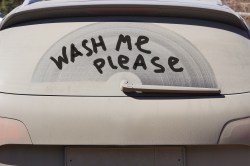Send your question to Umbra!
Q. I’d like to see your take on school fundraiser car washes. I live in Arizona and I cringe each time I pass one, as they seem so environmentally unsound.
David B.
Tucson, Ariz.
A. Dearest David,
My, my, will cars never cease in their environmental transgressions? Not only are they fossil fuel-guzzling, smog-belching, traffic-causing beasts, they also demand to be washed with gallon upon gallon of precious water and stream-polluting soaps. Add to that the image of rowdy high schoolers spraying each other with the hose in between jobs, and I’m cringing right along with you.
But I also know this: Budget shortfalls mean those schools probably desperately need the extra cash infusion — especially in Arizona, which, according to the U.S. Census Bureau [PDF], ranks No. 48 in per-pupil spending. So it behooves us to find a better option for this sudsy rite of passage. I’m happy to report that they exist, but first, let’s look at what’s wrong with those open-air scrub fests.
Unless your local car washers are actively implementing eco-friendly steps (see below), their fundraiser earns a dismal environmental grade. There are two things going on here. One, sheer water use: The average garden hose spews about 7 gallons of water per minute, adding up to a soggy 100 to 140 gallons per car. That’s a lot, especially in dry, drought-wracked regions like the Southwest.
Two, DIY car washes create problematic runoff issues. These students are probably set up in a parking lot along a busy road, right? Unfortunately, that means that the wash water — a nasty brew of exhaust fumes, gasoline, oil, and other vehicular secretions combined with fish-choking soap — will run off the pavement directly into the storm drain. In Tucson (and pretty much everywhere else), the stuff flows directly into your local rivers and lakes.
Simply relocating the fundraiser to a commercial car wash will save buckets of water. Self-service car washes are your best bet, using just 12 gallons of water per vehicle in desert regions like yours; conveyer-belt and automatic establishments use more (44 gallons and 72.5 gallons, respectively), but you’re still beating the hand wash. Commercial joints also may offer low-flow spray nozzles and shut-off valves, saving up to 70 gallons per scrub.
What’s more, car washes also must send their gray water to a treatment plant, thereby keeping the gunk out of local waterways. Some even recycle their own runoff. Many local businesses may be open to hosting a school fundraiser. Go here for several ideas on how to set one up.
There’s even a way for the kids to go one better: waterless car washes. Load up on nontoxic, biodegradable car cleaners, grab old rags or microfiber cloths, and get scrubbing. One such company, Eco Touch, shrewdly provides helpful hints for throwing a waterless fundraiser (using its products, of course). I can’t vouch for the cleaners personally, and some auto aficionados raise questions about how well they work — but other reviewers rave about them. If you simply must see your reflection in your car’s exterior, they’re certainly worth a try.
Even if those suggestions don’t work for a given school, the kids can at least green up their hosefest by blocking the nearest storm drains and washing cars on gravel or grass so that the wastewater gets naturally filtered, using those turn-offable spray nozzles mentioned above, and scrubbing up with phosphate-free, biodegradable soaps. (Note: That’s still no excuse for letting the water pour into the storm drain, as even those products can harm aquatic critters.) And kids: No soapy, wet-T-shirt shenanigans, OK? It’s wasteful, and it makes us old folks uncomfortable.
Knowledge is power, David, and with great power comes great responsibility. Now that you know the score on car-cleaning choices, don’t just cringe and pass on by. Next time you see one of these water-wasting events, take note of who’s holding it and contact the school. Pass on the tips you’ve learned for an eco-friendlier car wash (or just give them this simple fact sheet). If you’re feeling bold, you can even suggest some alternate fundraising ideas with a net positive environmental impact (bottle-recycling drives and tree-planting sprees, anyone?).
I highly doubt these schools are trying to waste water and kill fish in their attempts to fund the senior class trip. And when you speak up, everybody wins, all because you became the change you wanted to see in the world.
Latheringly,
Umbra




